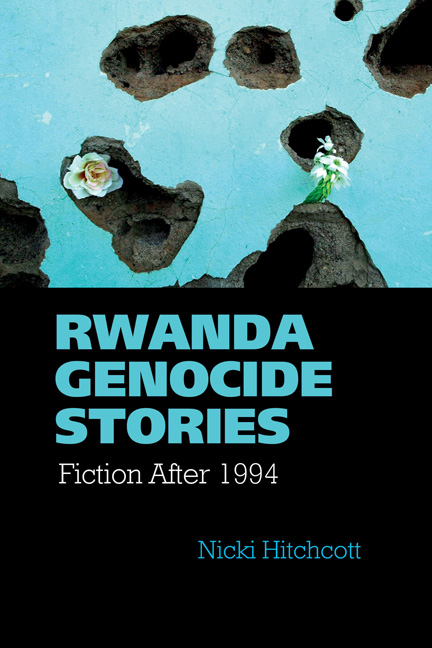2 - Tourists
Summary
Only four years after the genocide, in 1998, a group of ten African writers from eight different countries, including two Rwandans, travelled to Kigali as part of the commemorative literary mission ‘Rwanda: Ecrire par devoir de mémoire’ to reflect upon and write about what happened in 1994. Although, as discussed in the Introduction, a small number of genocide novels and testimonies had appeared before this initiative, the nine published texts that emerged as a result of the project really mark the birth of African literature about the Rwanda genocide. The project was conceived during the 1996 meeting of Fest'Africa, the annual Lille–based festival of African literature created by journalists Maïmouna Coulibaly and Nocky Djedanoum. One of the participants, Boubacar Boris Diop, describes how the execution of Nigerian author and environmental activist Ken Saro–Wiwa in November 1995 prompted the writers present at the festival to reflect on their impotence in the face of such brutality, a feeling that, as Diop explains, developed into an increasingly pressing need to be heard (2003: 75). Discussions then followed with the Rwandan community in Paris, culminating in the decision to send a group of authors from different African countries to Rwanda to spend time as writers in residence. The ten writers were Boubacar Boris Diop from Senegal, Nocky Djedanoum and Koulsy Lamko from Chad, Monique Ilboudo from Burkina Faso, Abdourahman Waberi from Djibouti, Tierno Monénembo from Guinea, Véronique Tadjo from Côte d'Ivoire, Meja Mwangi from Kenya and first–time authors Vénuste Kayimahe and Jean–Marie Vianney from Rwanda. Funded by the Fondation de France and the French Ministry of Cooperation, the group spent two months in the summer of 1998 in the Rwandan capital, where they met survivors, prisoners, journalists and representatives of NGOs, and gave talks at the national university and in schools (Diop, 2003: 75). They also visited the genocide memorials that had been constructed at a number of the places where large–scale massacres occurred, including the building planned for a technical boarding school in Murambi and the churches in Nyamata and Ntarama. These sites were to become major sources of creative inspiration for all the fictional texts produced by the project.
- Type
- Chapter
- Information
- Rwanda Genocide StoriesFiction After 1994, pp. 55 - 79Publisher: Liverpool University PressPrint publication year: 2015



